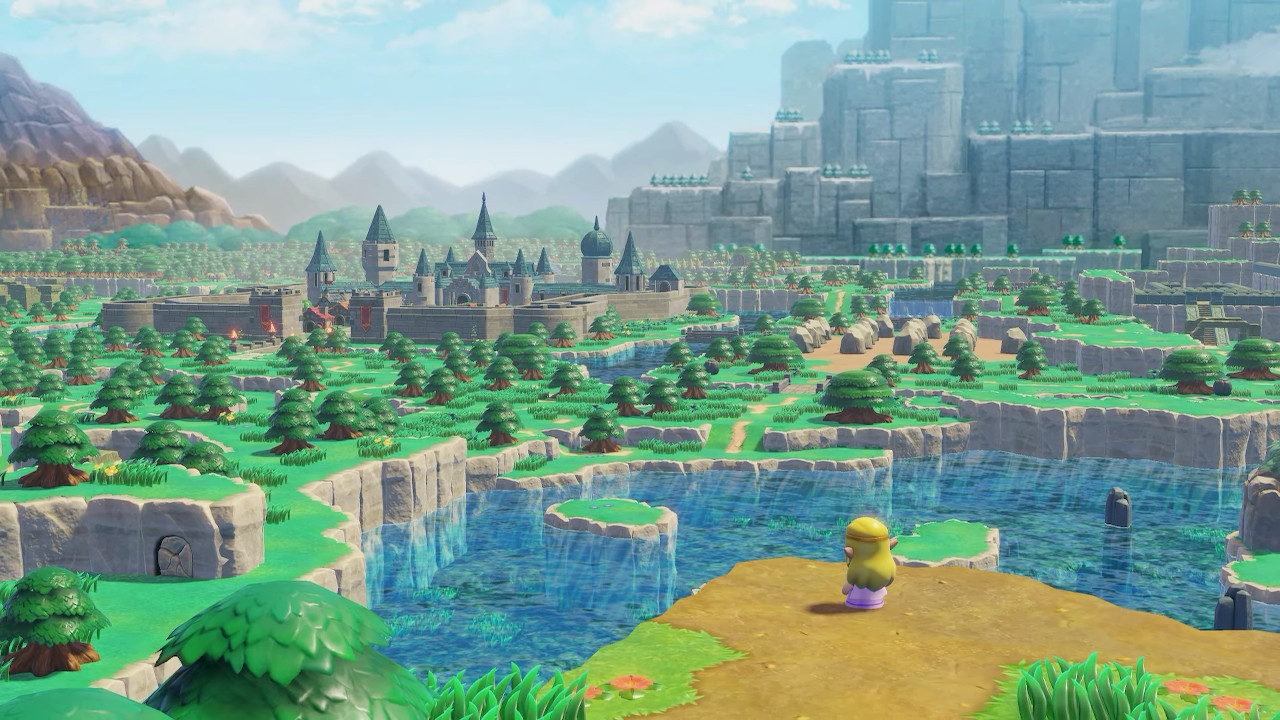TechRadar Verdict
The Legend of Zelda: Echoes of Wisdom is a charming follow-up to Link's Awakening that builds on that game’s beautiful aesthetic while introducing just enough new mechanics to feel truly distinct. The dubious performance and repetitive combat can drag, but this is largely an excellent adventure throughout.
Pros
- +
Adorable art direction
- +
Enjoyable puzzles
- +
Vibrant, memorable world
Cons
- -
Combat can be a chore
- -
Poor performance at times
Why you can trust TechRadar
Platform reviewed: Nintendo Switch
Available on: Nintendo Switch
Release date: September 26, 2024
Despite borrowing plenty of elements from both titles, The Legend of Zelda: Echoes of Wisdom definitely falls closer to the recent The Legend of Zelda: Link’s Awakening remake than The Legend of Zelda: Tears of the Kingdom. This is a traditional Zelda experience through and through, with plenty of puzzles to complete, intricate dungeons to master, and a more linear fantasy story to discover.
That might be a turn-off to some, but will undoubtedly be a huge draw for others. I can’t deny that there’s something incredibly refreshing about the return to the 2D format. As brilliant and innovative as it is, the shift to a more freeform open-world has definitely sacrificed some of the more careful, considered design of older games like The Legend of Zelda: A Link to the Past.
Nearly every aspect of Echoes of Wisdom feels finely crafted, with the introduction of some clever new mechanics successfully differentiating it from what we’ve seen before. I think that it will be remembered as one of the best Zelda games, perhaps even one of the best Nintendo Switch games, because of this, but it’s not a title that is without its flaws.
Girl power
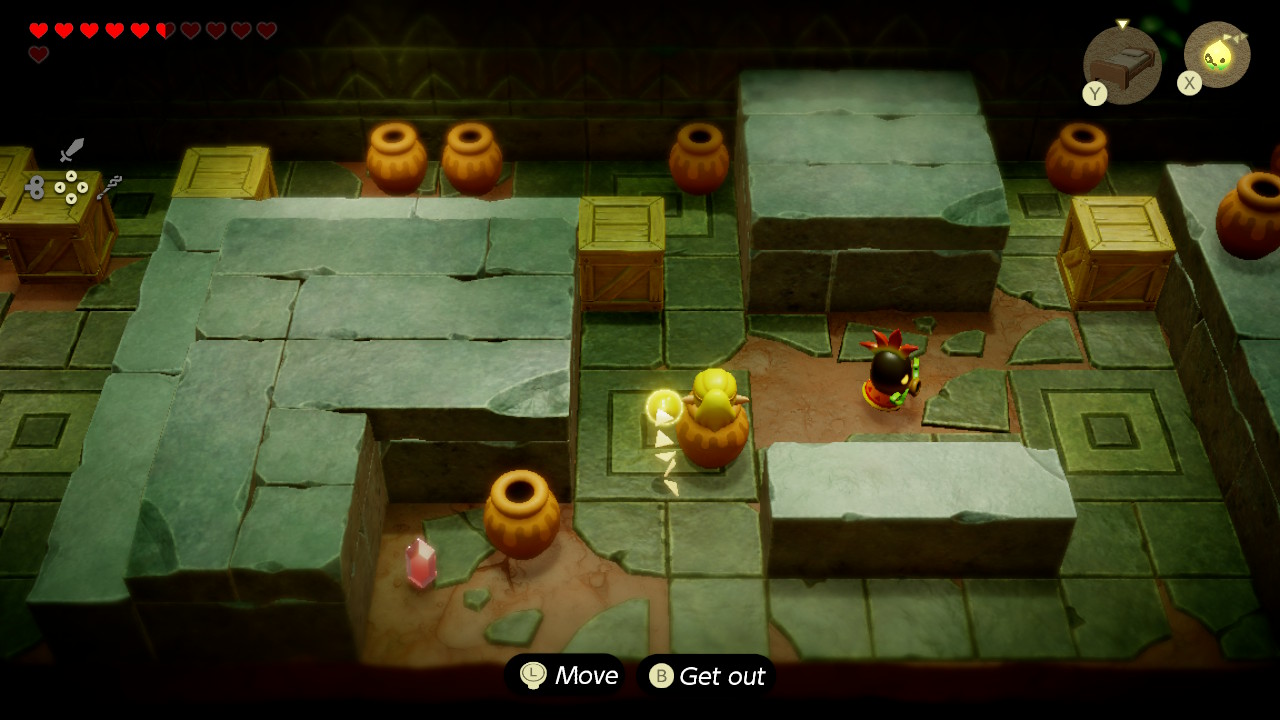
Echoes of Wisdom marks the first time that the series’ titular princess takes the starring role. Link has vanished, swallowed up by one of the countless purple rifts enveloping the kingdom of Hyrule and spewing out legions of shadowy monsters. The king has been replaced by a sinister clone that sentences his daughter, Princess Zelda, to death, confining her to the castle’s dungeon until her execution. It’s here that you meet Tri, a mysterious fairy who becomes your companion throughout the game.
Tri grants Zelda a suite of magical abilities in order to facilitate her escape and eventual defeat of the malevolent force behind the rifts. This begins with the power to create echoes, copies of certain objects that can be placed at will. From tables, giant crates, and beds that can be stacked to form bridges to floating blocks of water and bouncy trampolines, there are countless echoes to discover and experiment with. Any that you find are added to a growing library and can be brought out at any time, adding a fantastic collectible element.
You quickly learn Bond, which allows you to bind yourself to objects and carry them while you move. You can even activate Reverse Bond, which causes you to follow the movement of your bound object. While this whole system is not as expansive as the building of Tears of the Kingdom, these powers are leveraged in a plethora of interesting ways once you escape into the world of Hyrule and begin your quest in earnest. Puzzles frequently require the intelligent use of echoes and Bond. A large rock, for an abstract example, might be positioned on the opposite side of a grate. You can’t reach it normally, but you can use Bond to move it around.
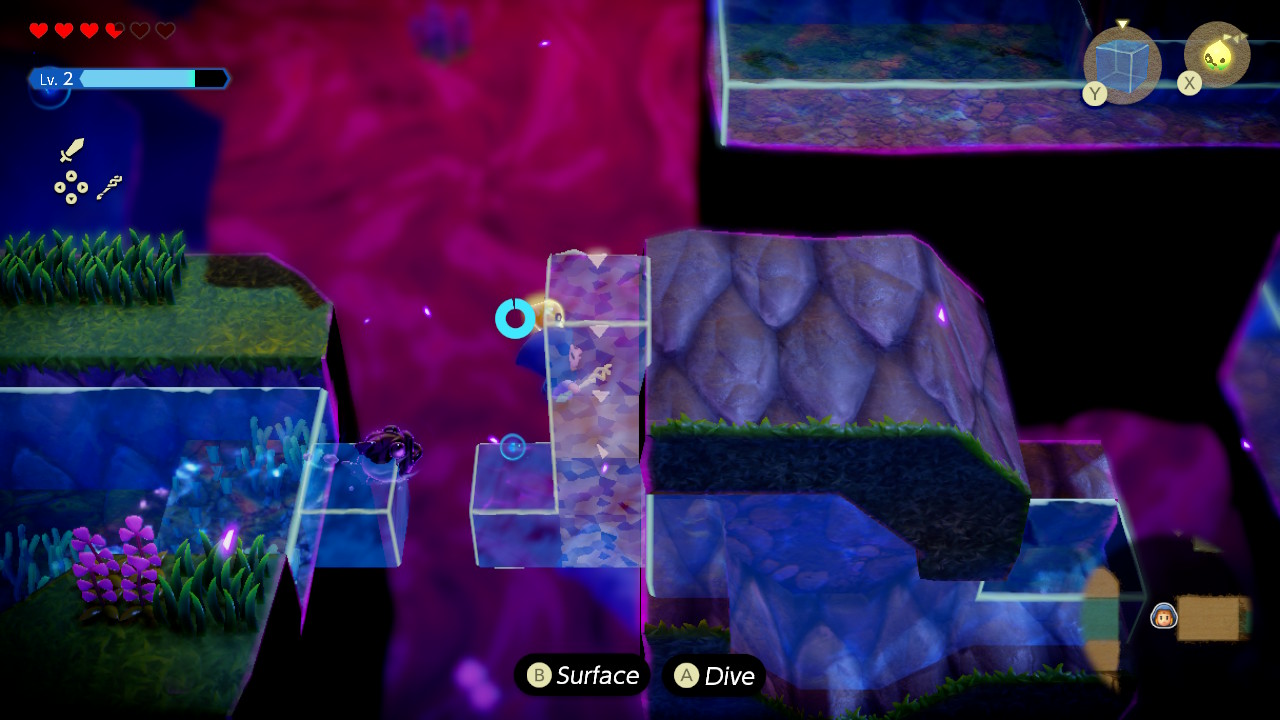
If the rock needs to be placed in a high position, perhaps on top of an out-of-reach pressure plate, you can simply create a stack of echoes to climb as a makeshift ladder in order to drag it up. It’s all delightfully intuitive and, importantly, remains so as the complexity ramps up. Many puzzles also have multiple solutions and I found that the vast majority of the time, if I expected a certain strategy to work, it would.
Sign up for breaking news, reviews, opinion, top tech deals, and more.
This openness can be a bit of a double-edged sword at times, though. Many dungeons contain platforming challenges that, although tricky, are very enjoyable to finally crack. Unfortunately, almost all of these can be bypassed by simply stacking up long chains of beds in order to bridge across them. This is in itself a lot of fun and rewards experimentation in a way, but does feel like a bit of a waste of the otherwise superb level design.
Free roam
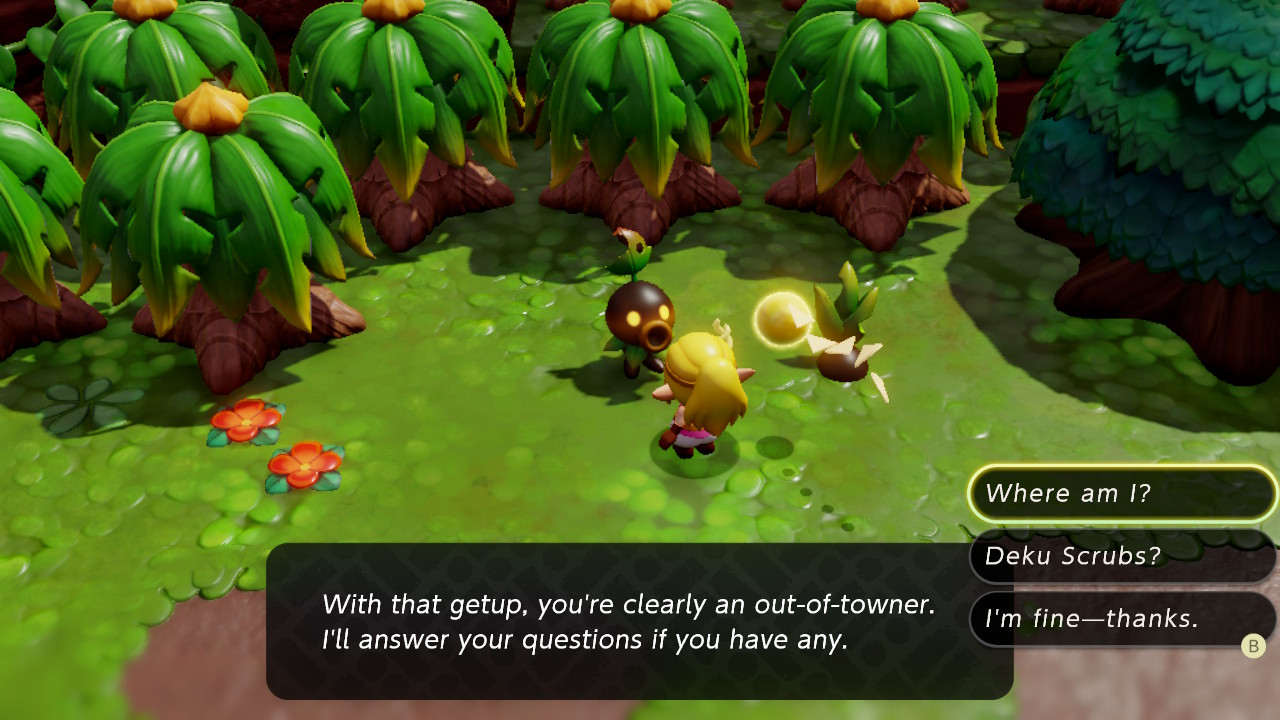
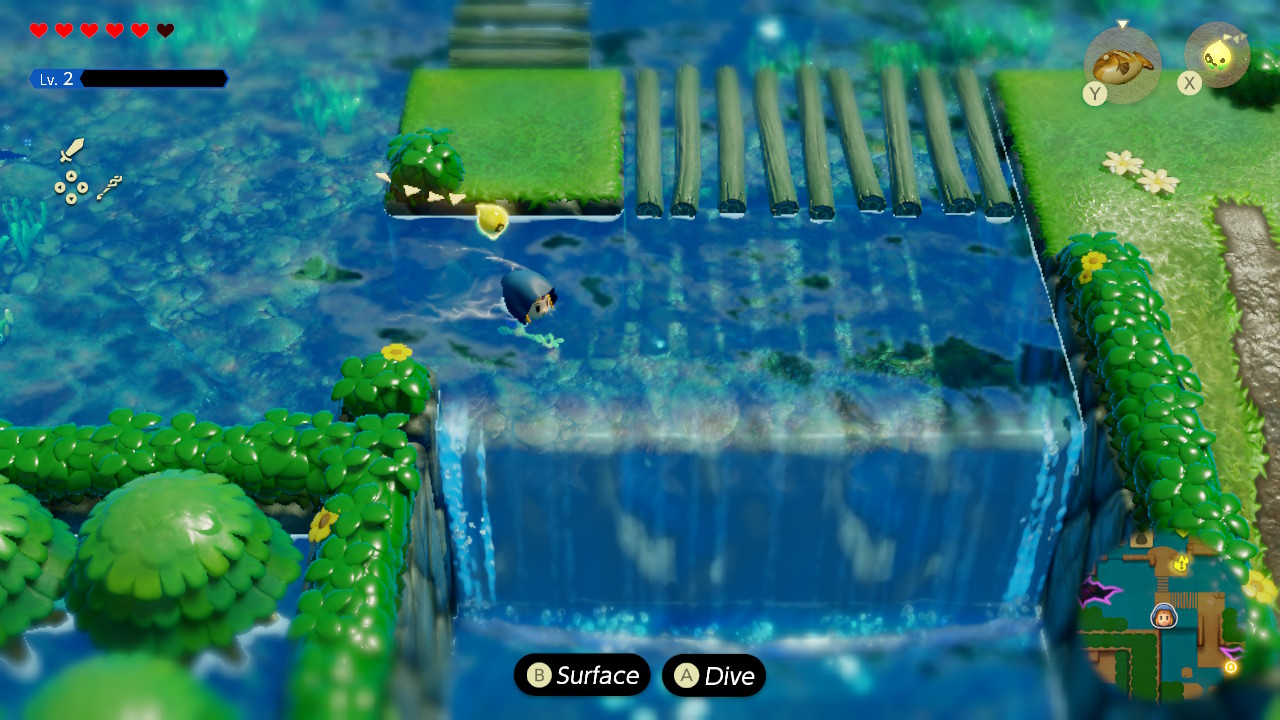
One side quest sees you tracking down a lost horse that you can then ride around the map at high speeds. It’s a delightful diversion and comfortably the best optional encounter that I’ve found in the game so far.
Although it follows a very linear story that is broken up into clear digestible chunks, Echoes of Wisdom does feature something of an open world. You’re free to wander around any accessible area as you please, though large portions of the map are blocked off until you reach about the halfway point in the story. There’s not a huge amount to do in this version of Hyrule, but there is just enough to make a little exploration worthwhile.
Hidden chests are littered throughout the world, filled with rupees and the occasional smoothie ingredient. These can be eaten raw as a quick health top-up or combined into powerful drinks with a variety of special effects such as elemental resistance at a handful of smoothie vendors. There are a decent number of unique combinations to find and the whole system is pleasantly reminiscent of the creative cooking introduced in The Legend of Zelda: Breath of the Wild. You can even make your own rather ineffective ‘Dubious Smoothie’ by adding in a splash of monster guts, a detail that I found quite amusing.
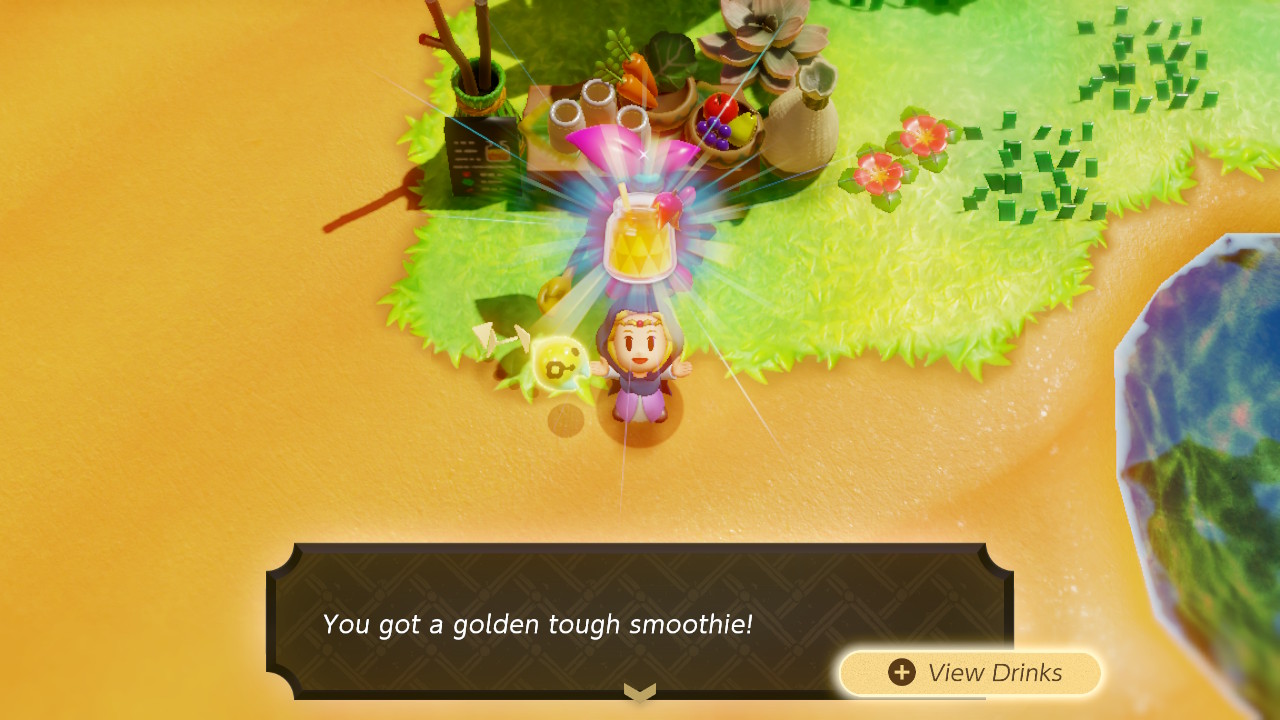
There are a good number of side quests too, most of which have you collect and summon a specific echo at the behest of an NPC. They’re quick to complete and don’t offer much in the way of useful rewards, but do result in some quite amusing and memorable interactions that help the world feel that much more alive.
On top of those found in dungeons, Hyrule is also packed with enemy creatures to fight. Combat is one of the most significant areas where Echoes of Wisdom departs from previous entries, as Zelda does not possess any conventional combat abilities at first. She can toss heavy rocks to deal damage in a pinch, or create echoes of previously defeated foes to fight on her behalf. This is a blast at first but unfortunately wears out its welcome quickly.
Even with a button to direct your minions toward a specific enemy, they’re just too slow and unresponsive. I often found myself skipping running past entire fights, purely because I didn’t want the hassle of managing an army of unreliable slimes. Thankfully, you unlock more combat abilities as you progress, including a magical sword that lets you transform into a swordfighter form.
In this form, Zelda dons Link’s trademark attire and effectively gains all of his abilities. You can slash with a sword, get shots off with a bow, and eventually toss explosive bombs. Your strength in this form can be upgraded too, with special collectibles hidden at the end of dungeons or in the most hard-to-reach corners of the map.
Miniature mayhem
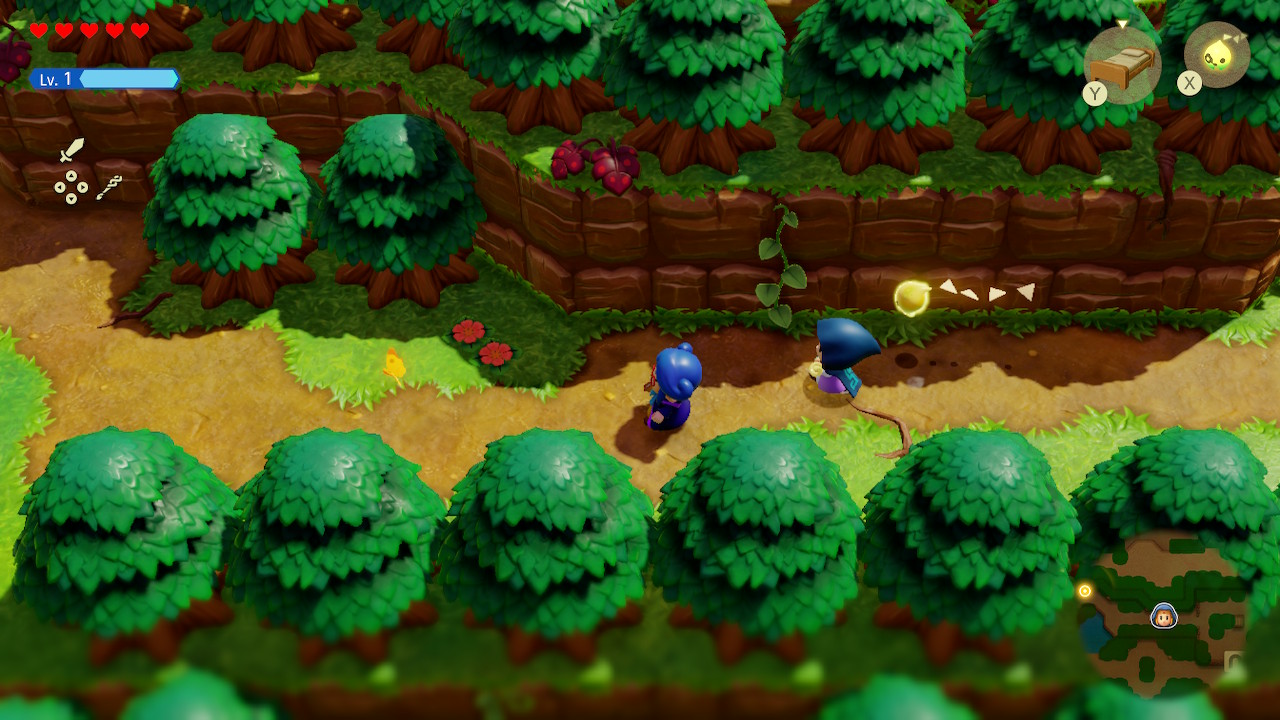
The whole of Echoes of Wisdom is rendered in an adorable, miniaturized visual style that makes everything from the characters to individual trees and buildings look like it was plucked from a cute diorama. It’s very similar to the look of Link’s Awakening and, sadly, means that Echoes of Wisdom suffers from many of the same performance problems.
Frame rates are a little higher overall, especially within dungeons, but are still prone to significant drops. This is understandable in particularly intense moments, especially when you’re dealing with lots of enemies and summoned creatures on the same screen, but is pretty inexcusable when it happens at random points in the world.
The particularly awful performance of one snowy area late in the game is almost unbearable in both handheld and docked mode, which is a massive shame and does spoil an otherwise attractive part of the world. Hopefully, there will be patches to address at least some of these problems down the line.
Otherwise, there’s an awful lot to like in Echoes of Wisdom. It’s cute, charming, and, despite relying on an older formula, it is packed with a handful of novel ideas that make it well worth your while.
Accessibility
There are no dedicated accessibility settings on The Legend of Zelda: Echoes of Wisdom. The game allows you to choose between a normal and Hero difficulty setting, with the latter designed for more experienced players, but that’s it. This is very disappointing, especially given the reliance on holding button inputs to use abilities. A few basic options to alter the control scheme to remove longer inputs would go a long way to make the game more accessible.
Should I play The Legend of Zelda: Echoes of Wisdom?
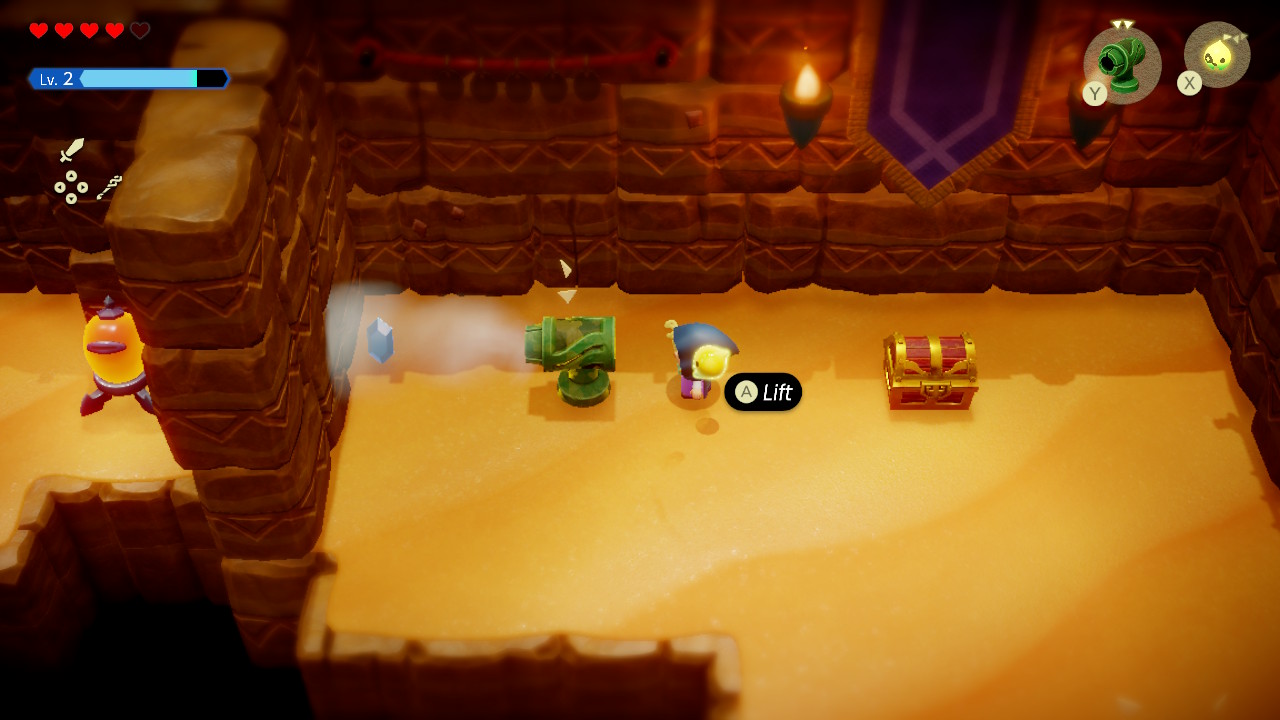
Play it if…
You want a traditional Zelda adventure
If the more open structure of Tears of the Kingdom and Breath of the Wild weren’t for you, then the more linear progression of Echoes of Wisdom might be right up your alley.
You want to play as the princess
As one of the only entries in the series where you can play as Princess Zelda, Echoes of Wisdom should be on your radar if you’ve always wished that you could play as the princess.
Don’t play it if…
Performance is your top priority
As good as it looks, Echoes of WIsdom has its fair share of performance issues. This is a game to avoid if you particularly care about a stable frame rate, at least until any potential patches arrive.
How I reviewed The Legend of Zelda: Echoes of Wisdom
I played over 15 hours of The Legend of Zelda: Echoes of Wisdom on Nintendo Switch OLED. During that time I completed the main story and played in a combination of both handheld and docked mode. In docked mode, I played on a 1080p monitor and used a Nintendo Switch Pro Controller. In handheld mode, I played using the standard Pastel Pink Joy-Con controllers and used a pair of Final VR500 earbuds.
Throughout my time with the game, I was careful to compare my experience with other adventure titles and plenty of past entries in The Legend of Zelda series including The Legend of Zelda: Tears of the Kingdom, The Legend of Zelda: Breath of the Wild, The Legend of Zelda: Majora’s Mask, The Legend of Zelda: Ocarina of Time, The Legend of Zelda: Link’s Awakening, The Legend of Zelda: Oracle of Ages, plus plenty of time in the original The Legend of Zelda.
First reviewed August 2024.

Dash is an experienced tech journalist who currently serves as the Gaming Editor at TechRadar, where he helps oversee coverage of video games and related products.
Before joining the team, he was Contributing Writer at PLAY (formerly Official PlayStation Magazine) and has also written articles for many of the UK's biggest gaming magazines including Edge, PC Gamer, and SFX.
Now, when he's not getting his greasy little mitts on the newest hardware or gaming gadget, he can be found listening to J-pop or feverishly devouring the latest Nintendo Switch otome.
